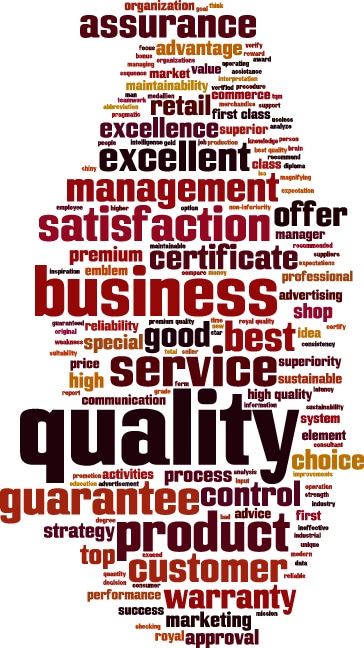Sustainable Business
From the CEO's Desk
Sustainable Business

Definition
“Sustain” according to Webster: To give support to, to keep up, to prolong.
Background
Sustainable business is business that contributes to the bottom line on continual basis. But is there such a thing as a truly sustainable business? We know that tastes change, and that innovations in specific products makes them obsolete. However, in the broad sense, business is sustainable according to the manufacturing process, i.e., Computer Numerical Control (CNC) machining is sustainable for the immediate future even though some products will be replaced by new ones. Services too, will require reworking. Some existing services will be folded into other services. New services will emerge to support new technologies. In theory, sustainability applies to general products and services rather than to specific ones. The rise of Kaizen has made many machines useless and replaced by new ones that can better serve such processes as JIT manufacturing. We have also seen the rise of “cells” that is, a group of machines located next to one another to go from start to finish allowing for the manufacturing process to proceed in a quick and orderly fashion.
But is it reality to think that any area of business or manufacturing can be sustainable, that is, prolonged at the same level? The idea of sustainability is alive and well but is this a reality and perception situation? Let’s accept that sustainability is attainable.
How should we go about implementing it?
Implementation
In the book, Strategy Formulation and Implementation (ISBN 0-256-09718-6) the authors included a Chapter entitled Implementing Strategy. After reading it, my thought was that there are organizational characteristics that support Strategy Implementation that might also support Sustainable Implementation.
For example, strategy implementation is described as converting the strategic plan into action and then into results. An organization’s Chief Executive along with the heads of various organizational units could be the persons responsible for seeing that Sustainability is implemented successfully. Some of their primary considerations are often the financial resources available along with a hard look at the firm’s “culture”.
Once a workable Sustainability Working Group is established two important elements that will help future successes are the skills, core competencies, know-how and competitive capabilities is has along with having the right people in key positions.
Sustainability is Built on Change
As we have noted earlier, sustainability is not set in concrete but rather built on change. As tastes change, and technology changes, so must Sustainability change. If an organization is always on the lookout for new and innovative things, people will want the latest and greatest and therefore continue to sustain the sales and the bottom line.
We only need to look at Apple’s i phone. When each new version is announced, there are lines around the block at each of their retail outlets. How long they can keep this up is a real question. They are also introducing other products piggy-backing the i phone success.
The keys to a successful business are that it is profitable and its business model is sustainable. To have an oversight group continually monitoring this, will ensure that Sustainability is alive and well.
Franklin Cooper ©2018.
